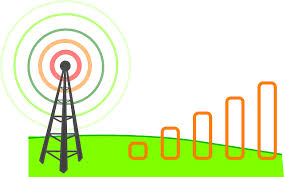Podcast: Play in new window | Embed
Tech News & Commentary
Kris in Redwood City, California listens on 1590 KLIV and is calling via the App asked: “I noticed a nice uptick in Facebook likes for my page, Great American Thrills. I haven’t changed anything in terms of the amount of content, nor have I done any advertising. Did the engineers finally listen to all the complaints by small business owners and change the algorithm?”
Kris, Facebook did change it’s algorithms, but you’re one of the lucky ones… most people seem to be experiencing a drop in likes and especially in reach.
 Facebook decided recently to remove likes from disabled accounts, which really just lowers your number but not your real reach, but Facebook has also changed the way in which businesses show up on users’ timelines.
Facebook decided recently to remove likes from disabled accounts, which really just lowers your number but not your real reach, but Facebook has also changed the way in which businesses show up on users’ timelines.
Their new algorithm only really makes posts visible to a fairly low percentage of subscribers (who did like the page to get those posts in the first place), and will allow those businesses to pay to have their message reach more of their own subscribers. Needless to say, this hasn’t gone over too well with small businesses.
The companies that have benefited from the change in algorithms seem to those mostly writing editorial articles, in your case, your post may be getting more views if Facebook considers them to be less commercial and more potentially interesting to their users.
You may have gotten lucky, but the vast majority of small businesses, and several not-so-small ones like Eat24.com who wrote a breakup letter to Facebook, told them “it’s not us, it’s you…” and closed their fan page, are not exactly embracing Facebook’s changes.
For more information, tune in to Hour 3 of our podcast.
Steven in Sparta, Missouri listens on WTN 99.7 FM asked: “In bad to low cell phone signal areas, is there a way to boost it, other than a Wilson booster?”
Steven, There are other options other than Wilson, Wilson is a big brand, but ultimately, it’s just a brand. SureCall offers good cellphone signal boosters, some specifically made for low outdoor signal areas, and you may even be able to find both boosters and extenders from your own carrier.
Verizon, for example, sells both branded boosters and extenders. The extenders are made by Samsung and need internet access, but will act as a mini cellphone tower and give you service even if there’s nothing on the air to repeat. AT&T calls the same devices “Microcells,” and they also have them available to their customers.
These devices are usually fairly simple to set up, you just tie them to your account, there’s typically an online registration, then they’ll try to get a GPS lock to figure out where they are and which towers they can attempt to contact, and you should be up and running after that. The advantage of going with your own cell phone company is that sometimes (not always) they may cover part or all of the cost of the repeater or extender to keep you as a customer.
These devices are not cheap, you’re looking at spending many hundreds on them, so if your carrier is willing to cover even some of it, you may be in for substantial savings.
For more information, tune in to Hour 3 of our podcast.
Amy in North Pole, Alaska listens on KFBX 970 AM asked: “I have a question about a laptop I’ll be getting. One says Intel Pentium, and one says Intel Core i3. The price difference is $110. Which one is better to have inside my laptop?”
Amy, A modern Pentium processor is not the kind that came out in the 90s, and is not that far behind an i for simple tasks, but if you do several things at once, the i3 might be better for you.
The Pentium will likely only be able to handle 2 threads at once, to the i3’s 4 threads, so on single tasks the performance will be similar, but if you’re running complex software, or several things at once, you’re likely to get better performance from the i3. The modern Pentium is basically a low end version of the i3 with some features such as Hyper Threading disabled, and with less cache and worse video support.
$110 is a pretty big price difference though, we’ve seen i3s listed for around $100 to $150, and that’s the whole price. There are many different models, some more expensive than others, but $110 difference is pretty surprising if all that’s different is the processor itself. The i3 is probably a better choice. Although, if you don’t do anything too complex, you may be just fine with the Pentium.
It’s always worthwhile, when deciding what specs you want in your next computer, to begin with the question of what tasks you want it to perform. For web browsing and email, and running the basic Microsoft Office apps, nearly any processor will do. A Pentium, as we said, will be fine.
That being said, there is also the issue of user experience. How long does your computer take to do something? How quickly does it respond? The processor is less important in this than the storage device (an SSD vs. a traditional hard drive), but it is still a major contributing factor.
So, while you might be able to use the Pentium and save the $110 over the cost of the Core i3, we really believe that it might be penny wise and pound foolish, given how much snappier the performance of the i3 will be. Unless, of course, the Pentium is in a laptop with an SSD and the Core i3 is in one with a traditional hard drive. In that case, the Pentium will run rings around it’s newer, faster cousin.
For more information, tune in to Hour 3 of our podcast.
Guest Segment:
John Dick, CEO and founder – CivicScience, Inc.
“IFA History Feature” brought to you by Messe-Berlin
At the beginning of the last century, something absolutely stunning was invented: people could talk in a room somewhere, and somewhere else, other people could hear it. Music could be listened to which was played in a concert hall in another city. Radio transmission was born. But how to receive it somewhere else, through the air? Complicated equipment had to be developed, and it had to be shown to the people. So the idea of an exhibition was born. It would become the mother of all electronic shows. On December 4th, 1924 the Big German Radio Show premiered, that show is known today as IFA. And it shows off a whole lot more than just radios these days.
Karl in Rapid City, South Dakota listens to the podcasts and calling in via the App asked: “I just bought an Android phone. I’d like to be able to use it to sync up to my iTunes library to keep track of play counts and work off my smart playlists. Is there an app for that?”
Karl, There are several ways to sync your iTunes with your Android device, it’s up to you to decide which method is easiest for you. The first method is manually transferring the files by locating, accessing, and transferring your iTunes downloads from your computer to your phone.
This can be laborious and require plenty of drag-and-drops, but the upside to this is that you can sort through and decide what is most important to transfer so you don’t wipe out all the free space on your phone.
Another method is by using the DoubleTwist or Airsync apps, which allow users with smaller libraries to easily access their iTunes from their Android device. The benefit of using these apps are that it can be done wirelessly using the app on your phone and the companion app on your computer– available for both Mac and Windows-based devices. DoubleTwist is entirely free, but Airsync costs about $4.99 at the moment.
The easiest solution by far is to download Google Play’s companion desktop app to your computer, point it at your iTunes music library, and allow it to upload your music files to the cloud. The music locker they give you free with Google Play will hold 20,000 songs. If your library is bigger than that, you’d have to find another solution.
The downside to Google Play is that your music is in the cloud and you have to stream songs to listen to them. If you find yourself somewhere with no signal, that’s an issue. However, you can download any songs you want available offline to your Android device.
Google Play’s Music Manager will also only sync your playcounts once, when the song is imported, but it will not keep the play count up to date with iTunes after that.
You could also just use iTunes. iSyncr will let you sync iTunes with an Android phone the same way you would with an iPhone, and using it would likely give you access to all of the features you want.
For more information, tune in to Hour 3 of our podcast.
Chris in Miami Beach, Florida listens to the Podcast asked: “I have never used cloud backup. I am curious; if you have a computer with say, 10-20 GB of operating system, and the rest programs and personal files, does Acronis store all the OS files for every individual user? Or do they keep 1 master copy for everyone?”
Chris, If you have multiple users Acronis won’t make an individual OS copy for each user, it will have one copy of the drive for everyone or it will give you the option to backup individual folders, if you would prefer that.
But don’t worry, if you have 3 or 4 users you won’t be backing up the operating system 3 or 4 times and uploading each of those 3 or 4 backups. Think of it as cloning your drive, but storing the cloned version off-site. You will have a full drive backup, not a backup per user.
For more information, tune in to Hour 3 of our podcast.
If you have any questions about any of this week’s show info, please email us here.
This Week’s Prizes for Our Listeners
Education.Com: Several “Brainzy” 12-month codes for online early-learning programs for math and reading. If you’ve got Kids … you WANT one of these!
PhoneSoap: Several Antibacterial – All Natural Touch Screen Polish (Ad lib: sorta like Cap Stick for your Phones & Tablets)
NanoTech: Several UltraFlix Gift Cards for 4K Content, like movies and a ton of other cool stuff. Let us know if you have a 4K Ultra HD TV!
iLuv: A pair of ReFashionOlogy Canvas Exterior, Collapsible Headphones with a Titanium Diaphragm
Westinghouse: Unplug Wireless Bluetooth Sound System



